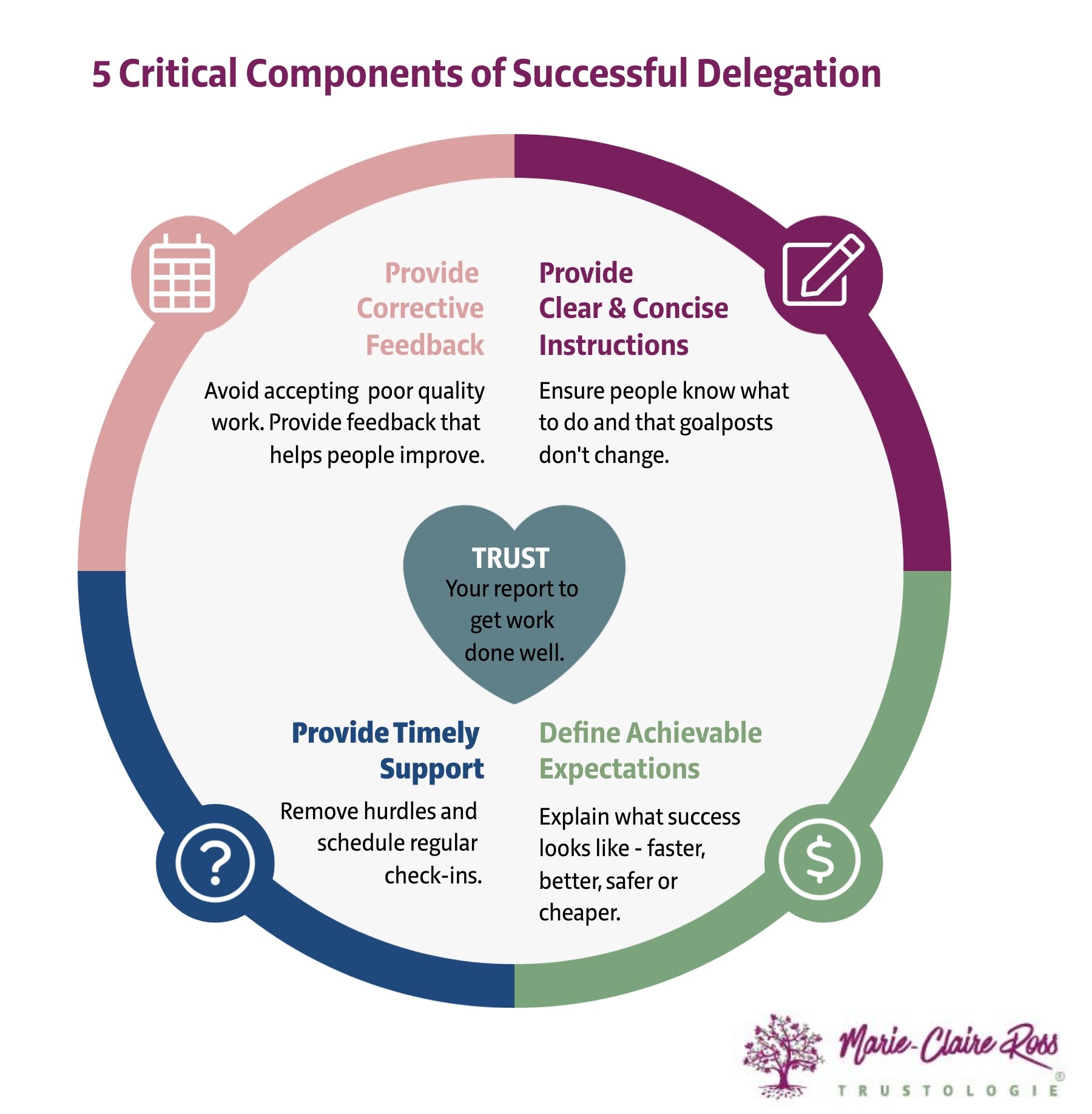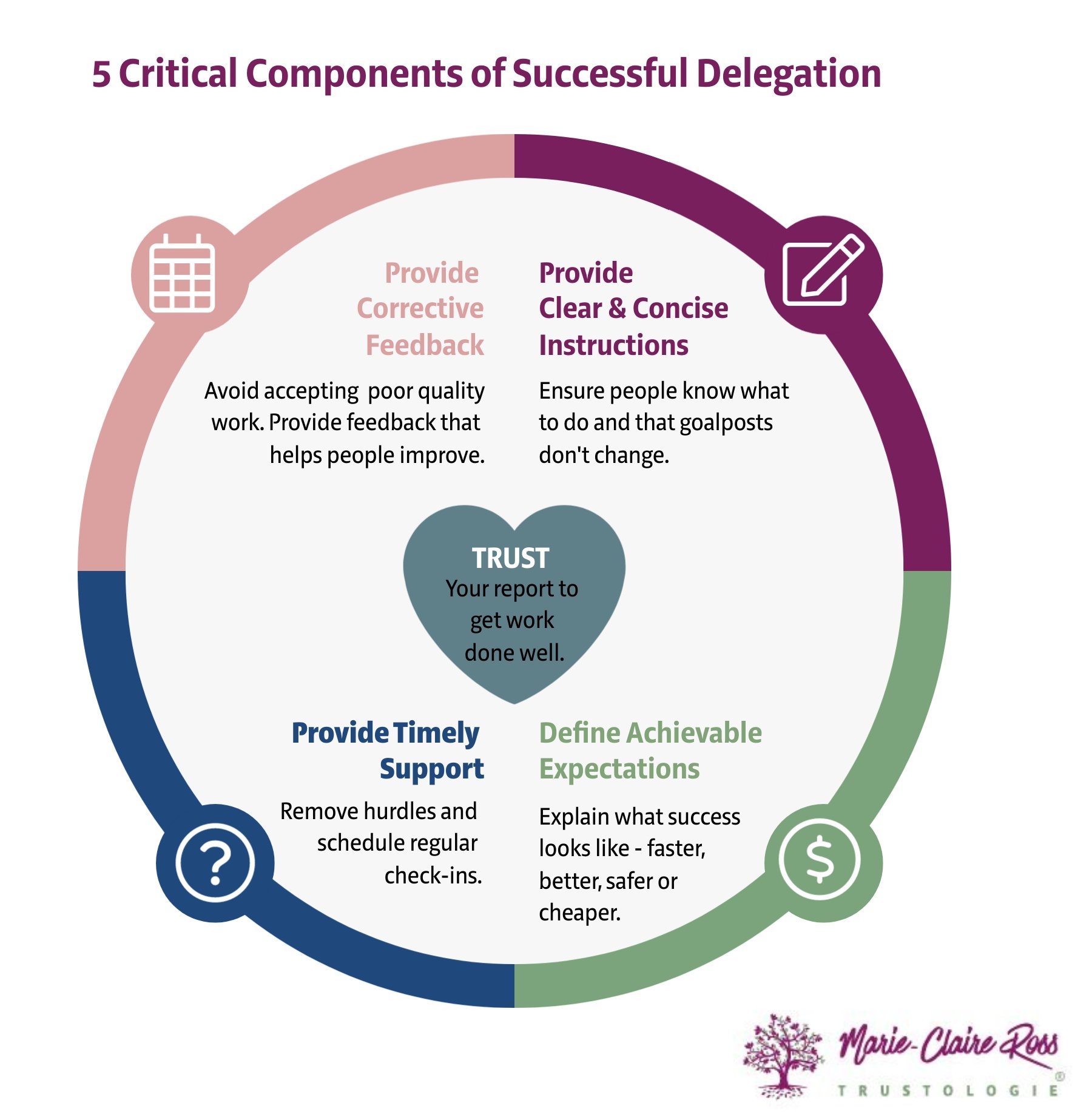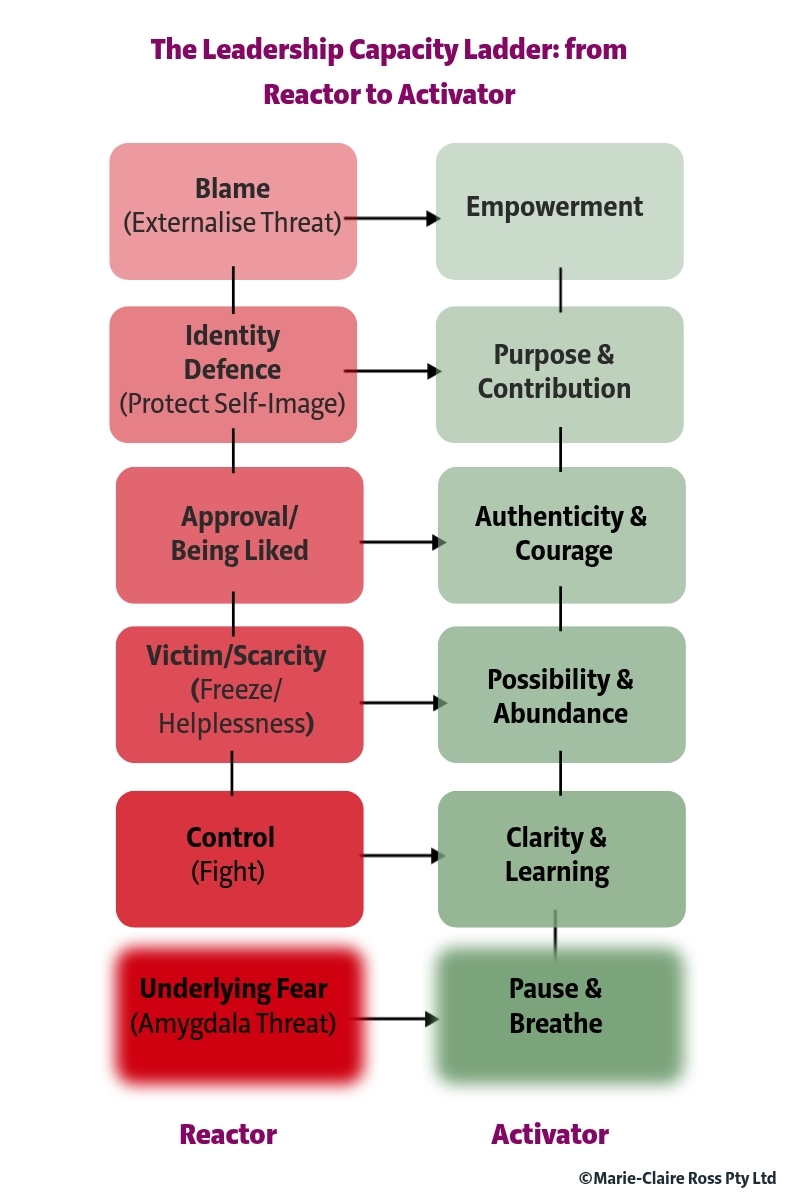5 min read
Why Great Leaders Thrive When Good Ones Fail During a Workplace Crisis
Implementing change in the workplace often creates pressure, uncertainty, and emotional reactions - especially during a workplace crisis. Successful...
Develop leaders, strengthen executive teams and gain deep insights with assessments designed to accelerate trust and performance.

Transform how your leaders think and perform with keynotes that spark connection, trust and high-performance cultures.

Explore practical tools, thought-leadership and resources to help you build trusted, high-performing teams.

Trustologie® is a leadership development consultancy founded by Marie-Claire Ross, specialising in helping executives and managers build high-trust, high-performing teams.

4 min read
Marie-Claire Ross : Updated on January 27, 2026

Delegation is a powerful leadership skill. Yet, most leaders don't receive adequate training in delegating effectively or don't fully understand it's importance.
Frequently, managers tell me that they don't delegate enough because they think staff are too busy, tasks are too boring to pass on or people can't do the work. Fear of "micro-managing" their team members can also stop more frequent delegation.
One of the reasons why delegation skills can be poor is that there is a common misperception that it's all about delegation of tasks. Leaders often carry a lot of unnecessary guilt about burdening their staff with more things to do. The result is leaders take more on, leading to exhaustion and burn out.
Research from McKinsey revealed that some middle managers spend up to two days a week on individual contributor work and a day a week on administrative tasks, in addition to their management responsibilities. Too much work, combined with too little time and resources adds up to scores of exhausted managers, who are almost twice as likely to leave their employer, according to a Microsoft study.
The truth is that we will get better results if we shift our mindset to understanding that delegation is about improving the skill levels of our direct reports and believing in their potential.
The benefits of delegation is that it strengthens succession planning in your organisation and ensures that if you were to be promoted, there is someone who is ready to take your place.
When you get that right, it builds trust between you and your direct report, as well as other senior leaders. Trust is essential to work relationships. It is a critical skill of an effective leader.
Effective delegation skills underscore the critical transitions for leaders to be seen as a key contenders for senior leader roles.
While I teach a 14 step delegation process in my Leadership Mastermind program, I want to share five critical components that summarises the important parts of successful delegation.

Let's break it down:
Trust is at the heart of delegation. It's about trusting your reports to get work done well and on time. And it's your reports feeling that you trust them.
It can be misguided to shelter your team from too much work because long term, it reduces their capability to get work done. Paradoxically, they start to feel they aren't trusted which can reduce engagement and team morale.
An effective delegation process automatically develops shared trust between you and your report. Shared trust is when you both work at bridging what needs to be done to trust one another. Accountability for building trust in the working relationship is taken on by both parties, rather than one giving trust freely or one demanding it.
A common barrier to delegation that might seem obvious, is using clear communication practices. This means that you need to have clarity around what needs to be done.
Clear thinking precedes clear communication which is why planning is critical to the delegation process. It also helps you get clear on the right delegation criteria.
Delegation is a lot of work upfront. It takes effort and planning. The benefit is that it minimises the amount of rework, errors and conflict. It is worth the investment of time.
After all, "Give a man a fish and you feed him for a day. Teach a man to fish and you feed him for a lifetime."
Poor delegation is when people don't know the context behind a task or how to do the task properly. Make sure you explain what needs to be done, why and how.
In addition to providing clear instructions providing clear expectations is also critical. This means explaining what success or even failure looks like.
This needs to be communicated through four different lenses:
Make sure whatever goals you communicate stay the same. Shifting goalposts make it hard for people to achieve an acceptable standard.
Direct reports will complain about the delegation process when they are given a task and are left on their own to figure out what to do. It might seem okay to throw people into the deep end and expect them to swim, but not everyone copes with that strategy.
Your employees want to be able to ask questions and know that you are there to guide them.
An acceptable practice is to bake in progressive feedback by scheduling check-ins and milestones. This ensures you have time to fix any issues in a swift manner. It also stops any fears around being a micromanager when you schedule in check-in sessions.
Employees want their boss to help them when they come up against hurdles. People are more likely to trust you if you are following up to make sure they are okay and removing bottlenecks.
Often, leaders will accept work at a poor standard because there isn't time to fix it. Avoid this common trap because it creates a vicious cycle of poor quality work that can spread like a contagion in your team.
Give people constructive criticism that provides clear actions that help them exceed standards. Don't be afraid to make people redo work a number of times before you are fully satisfied.
When you do this consistently and provide a clear list of individual actions that help your report do their best work, they will learn to apply themselves more. It will works towards improving accountability.
Making good delegation decisions involves placing trust in your team members to complete tasks effectively while believing in their abilities. This skill not only enhances your overall impact but also allows you to focus on more strategic and important responsibilities.
As a leader, your role extends beyond just overseeing daily tasks - it includes refining processes, supporting your team, strategising for the future, and maximising productivity.
Believing your team is too busy or certain tasks are beneath them only hinders their growth and development. It also hinders your own career opportunities.
Effective delegation skills demonstrate to other senior leaders that you have the prerequisite time management skills that show you are a strong contender for the leadership team.
Breaking free from this mindset is essential for both your team's progress and your own. By becoming a trusted leader who delegates tasks effectively, you empower your team to expand their skills and achieve better results.

5 min read
Implementing change in the workplace often creates pressure, uncertainty, and emotional reactions - especially during a workplace crisis. Successful...

7 min read
Navigating difficult conversations at work isn’t just a “nice to have” leadership skill – it’s the fault line that often separates healthy,...

8 min read
When my daughter was 17 months old, she discovered a superpower: the word “Why?”For the next two years, it was her response to almost everything.

Too often, what got a company to where it is today won’t get it to where it needs to be tomorrow. Established organisations frequently fall into the...
One of the most common complaints from employees revolves around whether they believe their organisation can be trusted.

If you think back over your career, when have you felt your most influential? When have you truly felt grounded in your own sense of power?